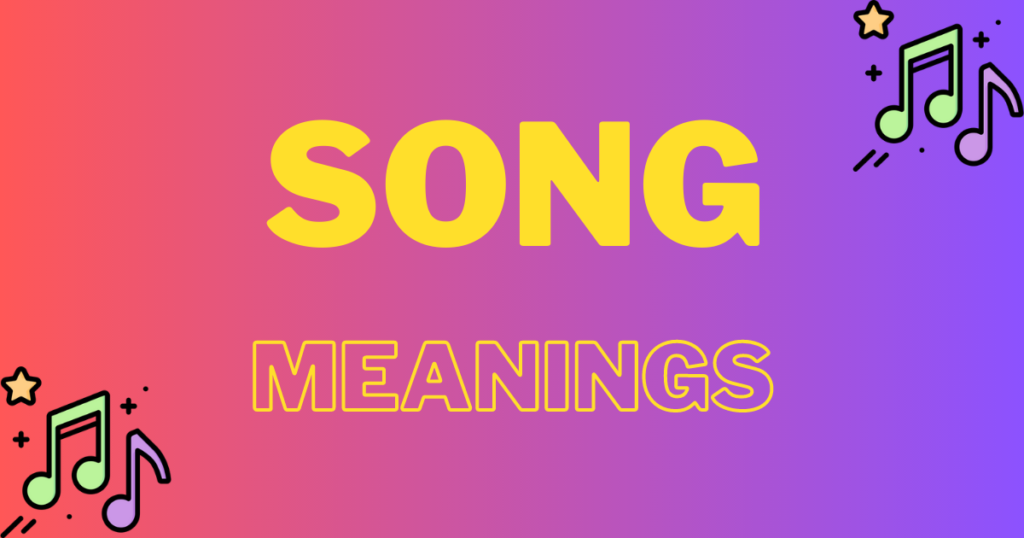The Meaning Behind The Song: Yo Soy la Voz by Celia Cruz
Yo Soy la Voz, which translates to “I Am the Voice,” is a powerful and influential song performed by the legendary Cuban singer, Celia Cruz. Released in 1998, this song holds a deep meaning and serves as a powerful anthem representing the struggles, resilience, and strength of the Afro-Caribbean community.
Table of Contents
The Struggle for Freedom
At its core, Yo Soy la Voz is a reflection of the historical and ongoing fight for freedom and equality. In the song, Celia Cruz uses her voice as a symbol of empowerment and liberation. The lyrics evoke a sense of pride in cultural heritage and a strong desire for social justice. The rhythmic beats and energetic melody enhance the song’s powerful message, creating an emotional connection with listeners.
Celebration of Identity
Yo Soy la Voz also serves as a celebration of identity. Celia Cruz, known as the Queen of Salsa, was an icon in the Latin music industry. As an Afro-Cuban artist, she broke barriers and challenged stereotypes, becoming a symbol of pride for many. Through this song, she instills a sense of unity and encourages individuals to embrace their roots and cultural heritage.
Inspiring Resilience
The song’s lyrics also highlight the resilience of the Afro-Caribbean community. Despite facing systemic prejudice, discrimination, and social marginalization, Yo Soy la Voz reminds listeners of their inner power and strength. It encourages individuals to overcome obstacles and stand up against oppression, recognizing that their voices hold the power to effect change.
Frequently Asked Questions:
1. What inspired Celia Cruz to write Yo Soy la Voz?
Celia Cruz was inspired by her personal experiences and the struggles faced by her community. The song captures her determination to be heard and her desire to use her platform to shed light on the challenges faced by marginalized individuals.
2. Does the song have any cultural significance?
Yes, Yo Soy la Voz holds immense cultural significance. It embodies the spirit of salsa music, which is deeply rooted in Afro-Caribbean traditions. Moreover, the song’s lyrics resonate with individuals who identify with the struggles and triumphs of the Afro-Latinx community.
3. What impact did Yo Soy la Voz have on the music industry?
The song’s release sparked important conversations about identity, representation, and social justice within the music industry. It became a symbol of empowerment and set a precedent for future artists to use their platforms to advocate for social change.
4. How did the audience respond to Yo Soy la Voz?
Yo Soy la Voz received widespread acclaim upon its release, garnering positive reviews from both critics and listeners. The song quickly became an anthem for empowerment and inspired many individuals to stand up for their rights and embrace their cultural heritage.
5. What themes are explored in Yo Soy la Voz?
The song explores themes of identity, empowerment, resilience, and social justice. It encourages individuals to find strength in their voices and celebrate their cultural roots.
6. How did Celia Cruz’s background influence the song?
Celia Cruz’s Afro-Cuban heritage and the discrimination she faced as an artist of color greatly influenced the lyrics and message of Yo Soy la Voz. It reflects her personal journey and serves as a testament to her unwavering spirit.
7. Is Yo Soy la Voz only popular within the Latinx community?
While the song holds special meaning for the Latinx community, its message of empowerment and resilience resonates with people from various backgrounds. The universal themes it explores transcend cultural boundaries, making it accessible and relatable to a wide audience.
8. How did Celia Cruz’s vocal performance enhance the message of Yo Soy la Voz?
Celia Cruz’s powerful and passionate vocal delivery adds an extra layer of depth to the song’s message. Her unique and captivating voice allows listeners to truly feel the emotions behind the lyrics, amplifying the impact of the song.
9. What other songs by Celia Cruz are similar in theme to Yo Soy la Voz?
Celia Cruz’s discography is filled with songs that echo the themes explored in Yo Soy la Voz. Some notable examples include “La Negra Tiene Tumbao,” “Quimbara,” and “Ríe y Llora.” These songs also emphasize cultural pride, resilience, and empowerment.
10. How has Yo Soy la Voz influenced the music of future generations?
Yo Soy la Voz has left an indelible mark on the music industry and continues to inspire artists today. Its message of empowerment and advocacy has influenced the creation of music that addresses social issues, encourages unity, and celebrates diverse cultures.
11. Did Celia Cruz face any backlash for releasing Yo Soy la Voz?
While Celia Cruz faced some criticism for her outspoken stance on social issues, the majority of the response to Yo Soy la Voz was overwhelmingly positive. The song’s impact and the important conversations it initiated outweighed any negative reactions.
12. How does Yo Soy la Voz resonate with individuals today?
In the present day, Yo Soy la Voz remains relevant and resonates with individuals who strive for social justice, cultural preservation, and empowerment. Its message continues to inspire generations, encouraging people to use their voices to enact change and embrace their heritage.
In conclusion, Yo Soy la Voz by Celia Cruz stands as a powerful testament to the struggles, pride, and resilience of the Afro-Caribbean community. Through its exceptional lyrics, vibrant melody, and captivating performance by Celia Cruz, the song continues to empower and inspire listeners, reminding them of the importance of embracing their voice and cultural identity.


